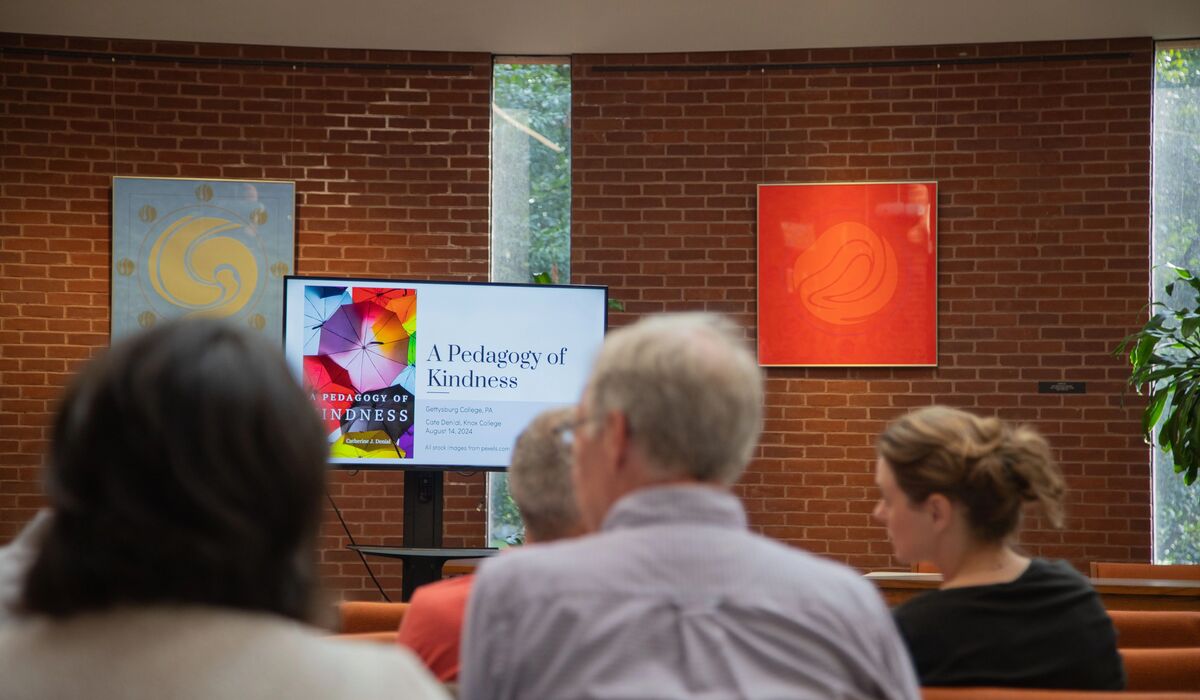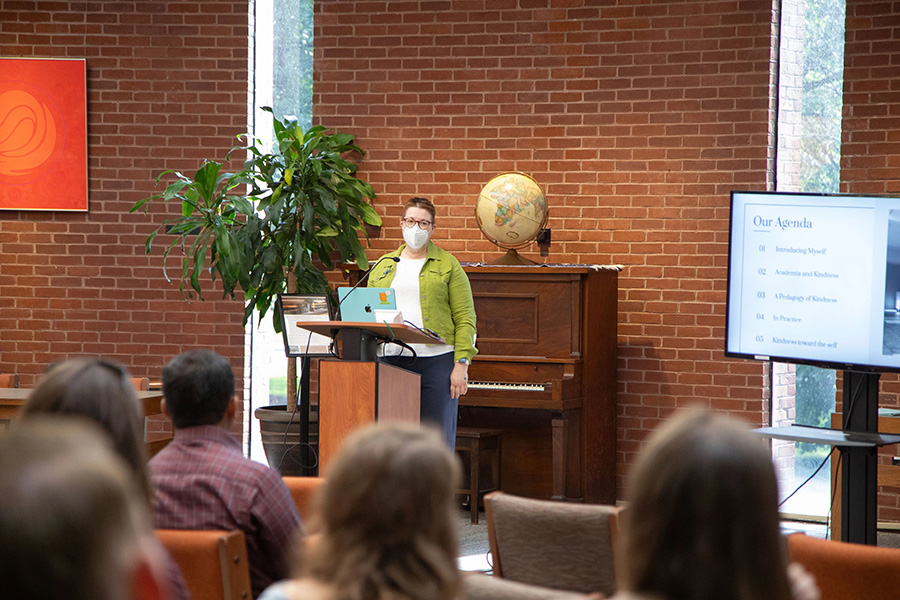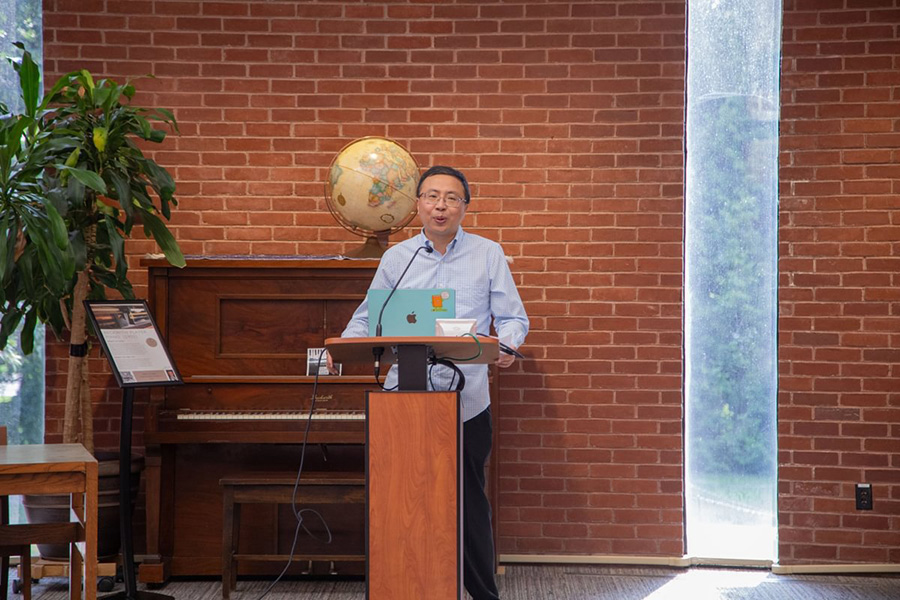
Demonstrating their commitment to supporting the whole student, more than 70 Gettysburg College faculty and staff participated in “Embracing Kindness Amid Changes,” the Summer Pedagogy Institute presented by Gettysburg’s Johnson Center for Creative Teaching and Learning (JCCTL).
On Aug. 14-15, attendees gathered at Musselman Library to discuss ways to create compassionate, innovative learning environments where students and faculty can thrive. Faculty in attendance identified how to empower students as they expand their breadth and depth of knowledge and build enduring skills through the Gettysburg Approach.
“The Summer Pedagogy Institute, carefully planned by JCCTL Director and East Asian Studies Prof. Junjie Luo, provided an important opportunity for faculty to spend a day immersed in conversations about teaching and learning,” said Associate Provost for Faculty Affairs Michelle Schmidt. “It was a day that reinforced our faculty’s passion for teaching and deep care for our students.”
Summer Pedagogy Institute participants discussed Gettysburg College’s new core curriculum, which will be implemented at the beginning of the 2025-2026 academic year. They also shared strategies and techniques to modify existing courses or develop new courses to meet curricular requirements, such as First-Year Data & Society, the Communities and Change Sophomore Seminar, Identities and Cultures, and Race, Power, and Equity, explained Classics Prof. Rachel Lesser, a member of the Summer Pedagogy Institute’s Steering Committee.
“College faculty gained greater insight into the needs of Gettysburg students and developed their capacity to meet those needs and teach compassionately and effectively,” Lesser added.

To jumpstart the institute, Cate Denial, the Mary Elizabeth Hand Bright and Edwin Winslow Bright Distinguished Professor of American History and director of the Bright Institute at Knox College, shared insights from her book “A Pedagogy of Kindness” (University of Oklahoma Press, 2024) during her keynote presentation. Denial’s work explores the discipline of teaching with compassion to co-create exceptional learning opportunities for all students.
“I particularly valued all the one-on-one conversations I had with faculty during my visit—such a wonderful opportunity to mutually share ideas and to brainstorm new approaches to classroom challenges,” Denial said. “I hope they felt affirmed in the kindness they already perform for one another, toward their colleagues, and toward students. I hope they got new ideas for ways to make that kindness even more transparent in their course documents, assignments, and classroom activities. I hope that they felt energized and ready to tackle a new school year!”
Psychology Prof. Kathy Berenson said she attends the Pedagogy Institute every summer because she always gains new ideas and inspiration she can implement in her classes.
“This year, I heard from colleagues in the HIPP Scholars program about what they have been working on to make their science classes more inclusive,” she said. “I participated in a thoughtful small-group discussion with colleagues in which we considered the pros and cons of the Honor Code and potential modifications to it from standpoints of equity. I heard from colleagues brainstorming about developing exciting new courses for the new curriculum.”

East Asian Studies Prof. and JCCTL Director Junjie Luo acknowledged the work of the Summer Pedagogy Institute Steering Committee and Associate Provost for Faculty Affairs Michelle Schmidt for conceiving this year’s topics and organizing the event. Representing the committee are the following:
- English Prof. Melissa Forbes
- Assistant Dean for Student Accessibility Theresa Hoover
- Academic Administrative Assistant for Environmental Studies and JCCTL Christine Hopkinson
- Classics Prof. Rachel Lesser
- Research, Instruction, and Online Learning Librarian Kevin Moore
- Senior Instructional Technologist Kelli Murphy
“As we navigate changes in both what we teach and how we teach, this year’s Summer Pedagogy Institute provided a forum for us to collectively and collaboratively explore these shifts—such as the implementation of a new curriculum—and share our pedagogical innovations in response,” Luo said. “The ultimate goal of this institute is to ensure that these changes and our adaptations to them better support our students’ success.”
By Michael Vyskocil
Photos by Kailey White ’21
Posted: 09/04/24